|
Related FAQs: Worms, Featherdusters 1, Featherdusters 2, Tubeworms 3, Tubeworm ID 1, Featherduster ID 2, Featherduster ID 3, Featherduster ID 4, & Tubeworm Behavior, Tubeworm Compatibility, Tubeworm Selection, Tubeworm System, Tubeworm Feeding, Tubeworm Disease, Tubeworm Reproduction, Worm Identification, Polychaete Identification,
Worm IDs 1, Worm IDs 2, Worm
IDs 3, Worm IDs 4,
Worm IDs 5, Worm IDs 6, Worm
IDs 7, Worm IDs
8,
Related Articles: Polychaete Worms, Worm
Diversity, Nematodes:
Roundworms,
/A Diversity of Aquatic Life
Feather Dusters, Tube-Dwelling
Sedentariate Polychaete Worm Diversity, part II
Sedentariate Polychaetes part I,
part III,
part IV
To: Errantiate (i.e.
Non-tubiculous) Polychaetes (many known to hobbyists as
"Bristleworms"
|
|
|
By Bob Fenner
|
|
Genus Sabellastarte:
| Sabellastarte indica (now S. spectabilis) (Savigny 1818), the
Magnificent Banded Fanworm. Cosmopolitan; all tropical seas. To
four inches in diameter (coronal head). The most common
"Feather Duster Worm" sold in the pet trade. These two
off of Gili Air, Lombok, Indonesia. |
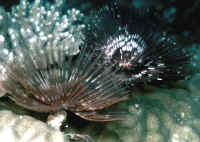 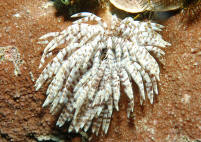
|
Bigger PIX:
The images in this table are linked to large (desktop size) copies.
Click on "framed" images to go to the larger size. |

.JPG)
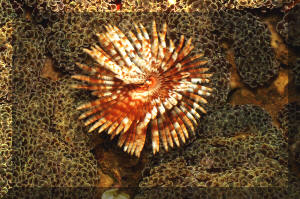
%20MD.JPG)
%20MD.JPG)
%20MD.JPG) |
| Sabellastarte magnifica (Shaw 1800) Double row of
radioles showing a banded pattern; to 3-6 inches in diameter. St Thomas 2014 |
%20MD.JPG) |
| Sabellastarte sanctijosephi (Gravier 1906).
Indo-Pacific; Eastern Africa to the Hawaiian and Cook Islands.
Image shot off of Hawai'i. Characterized by their two
tentacular crown head. |
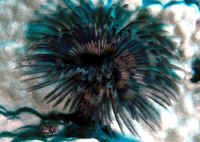
|
Bigger PIX:
The images in this table are linked to large (desktop size) copies.
Click on "framed" images to go to the larger size. |
.JPG)
%20MD.JPG)
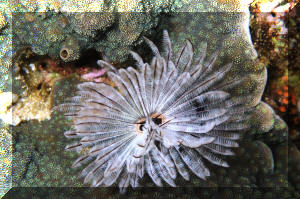
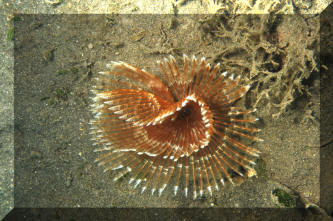 |
| A Sabellid I can't ID as yet. St Thomas 2014 |
%20MD.JPG) |
| Unknown Sabellastarte sp. Bali 2014 |
%20MD.JPG) |
Sedentariate Polychaetes part I,
part III,
part IV
|
|

